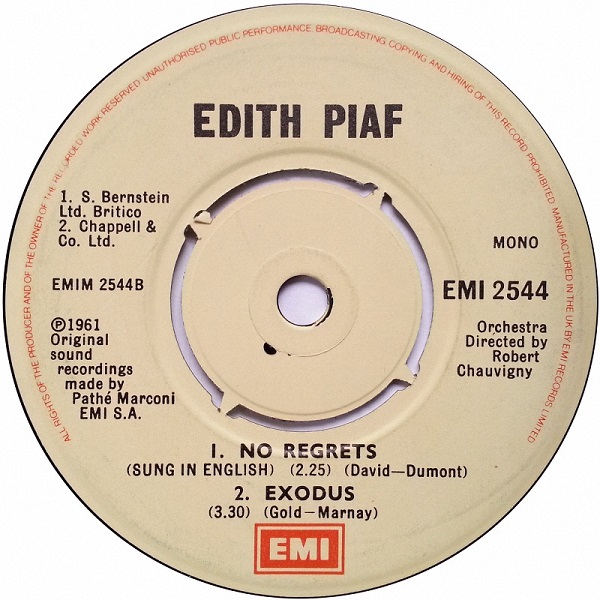Well, things are getting very exciting now! I am officially ready to start my final-of-all-final revisions 🙂
All of my notes are ready… I have my:
- chapter-by-chapter notes (all things that need to be changed, added, noted in each chapter);
- general notes (things to keep in mind for every chapter);
- character summaries (detailed notes on physical appearance, clothing, items, weapons, scent, dialogue, mannerisms and personality quirks for each character);
- calendar (complete with season transition dates and moon cycles);
- sets and stages inventories;
- list of phrases and words I’ve repeated throughout my WIP that need to be reworked; &
- list of line editing rules* I need to keep in mind (ie. passive voice, strong verbs, etc.).
I seriously cannot wait to get started…
Unfortunately, I have to. The end of the year is nigh and writing must be set aside for a few weeks while I clean house and pack bags in preparation for our annual Christmas trip to Tasmania (where my parents live). Plus, my youngest man turns one the weekend before we leave, so there is party planning to be done too 🙂 Not that I mind. It’s a good thing to have a break before I throw myself at my manuscript – it puts some well-needed space between me and my words so I can be more objective 🙂
I love writing in Tassie. I have a gorgeous little table set up in the attic beside a window with a breathtaking view…

This pic is old, but it is all I have for now. Once I get to Tassie I will take some new photos and post them then…
… and all I have to do for a whole month is write, relax and catch up with the relos 🙂 Absolute heaven! I don’t have to worry about housework or cooking, and I get extra time for writing while the kids hang out with their grandparents – in short, exactly what I need to clear out the cobwebs in my mind and get stuck into finishing this book for good…
At the risk of sounding redundant, I can’t wait!
It is so amazing to think that once I finish each chapter now, that will be it. Fini. Ferdig. Finito. Then it will be off to agents for querying. Woohoo! I am soooooo going to celebrate when that day comes! And if I proceed the way I hope to (ie. finish two chapters per week) it should come sometime in March. Oh my! I cannot even imagine what it’s going to feel like when I press the save button for the last time.
Anyways, I’d better get back to real life… dust and cleaning products await!
* A few years ago I stumbled across a great list of rules I think every writer could benefit from – Allan Guthrie’s Hunting Down the Pleonasms (you can download the original HERE).
1: Avoid pleonasms. A pleonasm is a word or phrase which can be removed from a sentence without changing its meaning. For example, in “Hunting Down The Pleonasm”, ‘down’ is pleonastic. Cut it and the meaning of the sentence does not alter. Many words are used pleonastically: ‘just’, ‘that’ and ‘actually’ are three frequently-seen culprits (I actually just know that he’s the killer can be trimmed to I know he’s the killer), and phrases like ‘more or less’ and ‘in any shape or form’ are redundant.
2: Use oblique dialogue. Try to generate conflict at all times in your writing. Attempt the following experiment at home or work: spend the day refusing to answer your family and colleagues’ questions directly. Did you generate conflict? I bet you did. Apply that principle to your writing and your characters will respond likewise.
3: Use strong verbs in preference to adverbs. I won’t say avoid adverbs, period, because about once every fifty pages they’re okay! What’s not okay is to use an adverb as an excuse for failing to find the correct verb. To ‘walk slowly’ is much less effective than to ‘plod’ or ‘trudge’. To ‘connect strongly’ is much less effective than to ‘forge a connection’.
4: Cut adjectives where possible. See rule 3 (for ‘verb’ read ‘noun’).
5: Pairs of adjectives are exponentially worse than single adjectives. The ‘big, old’ man walked slowly towards the ‘tall, beautiful’ girl. When I read a sentence like that, I’m hoping he dies before he arrives at his destination. Mind you, that’s probably a cue for a ‘noisy, white’ ambulance to arrive. Wailingly, perhaps!
6: Keep speeches short. Any speech of more than three sentences should be broken up. Force your character to do something. Make him take note of his surroundings. Ground the reader. Create a sense of place.
7: If you find you’ve said the same thing more than once, choose the best and cut the rest. Frequently, I see the same idea presented several ways. It’s as if the writer is saying, “The first couple of images might not work, but the third one should do it. If not, maybe all three together will swing it.” The writer is repeating himself. Like this. This is a subtle form of pleonasm.
8: Show, don’t tell. Much vaunted advice, yet rarely heeded. An example: expressing emotion indirectly. Is your preferred reader intelligent? Yes? Then treat them accordingly. Tears were streaming down Lila’s face. She was very sad. Can the second sentence be inferred from the first? In context, let’s hope so. So cut it. If you want to engage your readers, don’t explain everything to them. Show them what’s happening and allow their intelligence to do the rest. And there’s a bonus to this approach. Because movies, of necessity, show rather than tell, this approach to your writing will help when it’s time to begin work on the screenplay adaptation of your novel!
9: Describe the environment in ways that are pertinent to the story. And try to make such descriptions active. Instead of describing a book lying on a table, have your psycho-killer protagonist pick it up, glance at it and move it to the arm of the sofa. He needs something to do to break up those long speeches, right?
10: Don’t be cute. In the above example, your protagonist should not be named Si Coe.
11: Avoid sounding ‘writerly’. Better to dirty up your prose. When you sound like a writer, your voice has crept in and authorial intrusion is always unwelcome. In the best writing, the author is invisible.
12: Fix your Point Of View (POV). Make it clear whose head you’re in as early as possible. And stay there for the duration of the scene. Unless you’re already a highly successful published novelist, in which case you can do what you like. The reality is that although most readers aren’t necessarily clued up on the finer points of POV, they know what’s confusing and what isn’t.
13: Don’t confuse the reader. If you write something you think might be unclear, it is. Big time. Change it or cut it.
14: Use ‘said’ to carry dialogue. Sid Fleischman calls ‘said’, “the invisible word.” That’s not quite true (anyone who doubts this should track down a copy of Fletcher Flora’s Most Likely To Love), but it’s close enough. And don’t use adverbs as modifiers. Adverbs used in this way are ‘telling’ words (I told you rule 8 was rarely heeded!).
15: Whilst it’s good to assume your reader is intelligent, never assume they’re psychic.
16: Start scenes late and leave them early.
17: When writing a novel, start with your characters in action. Fill in any necessary backstory as you go along.
18: Give your characters clear goals. Always. Every scene. And provide obstacles to those goals. Always. Every scene. If the POV character in a scene does not have a goal, provide one or cut the scene. If there is no obstacle, add one or cut the scene.
19: Don’t allow characters who are sexually attracted to one another the opportunity to get into bed. Unless at least one of them has a jealous partner.
20: Torture your protagonist. It’s not enough for him to be stuck up a tree. You must throw rocks at him while he figures out how to get down.
21: Use all five senses in your descriptions. Smell and touch are too often neglected.
22: Vary your sentence lengths. I tend to write short, and it’s amazing what a difference combing a couple of sentences can make.
23: Don’t allow your fictional characters to speak in sentences. Unless you want them to sound fictional.
24: Cut out filtering devices, wherever possible. ‘He felt’, ‘he thought’, ‘he observed’ are all filters. They distance the reader from the character.
25: Avoid unnecessary repetition of tense. For example: I’d gone to the hospital. They’d kept me waiting for hours. Eventually, I’d seen a doctor. Usually, the first sentence is sufficient to establish tense. I’d gone to the hospital. They kept me waiting for hours. Eventually, I saw a doctor.
26: When you finish your book, pinpoint the weakest scene. Cut it. If necessary, replace it with a sentence or paragraph.
27: Don’t plant information. How is Donald, your son? I’m quite sure Donald’s father doesn’t need reminding who Donald is. Their relationship is mentioned purely to provide the reader with information.
28: If an opinion expressed through dialogue makes your POV character look like a jerk, allow him to think it rather than say it. He’ll express the same opinion, but seem like a lot less of a jerk.
29: Characters who smile and grin a lot come across as deranged fools. Sighing and shrugging are also actions to avoid. Eliminating smiles, sighs and shrugs is almost always an improvement. Smiling sadly is a capital offence.
30: Pronouns are big trouble for such little words. The most useful piece of information I ever encountered on the little blighters was this: pronouns refer to the nearest matching noun backwards. For example: John took the knife out of its sheath and stabbed Paul with it. Well, that’s good news for Paul. If you travel backwards from ‘it’, you’ll see that John has stabbed Paul with the sheath! Observing this rule leads to much clearer writing.
31: Spot the moment of maximum tension and hold it for as long as possible. Or as John D. MacDonald put it: “Freeze the action and shoot him later.”
32: If something works, forget about the rule that says it shouldn’t.

























